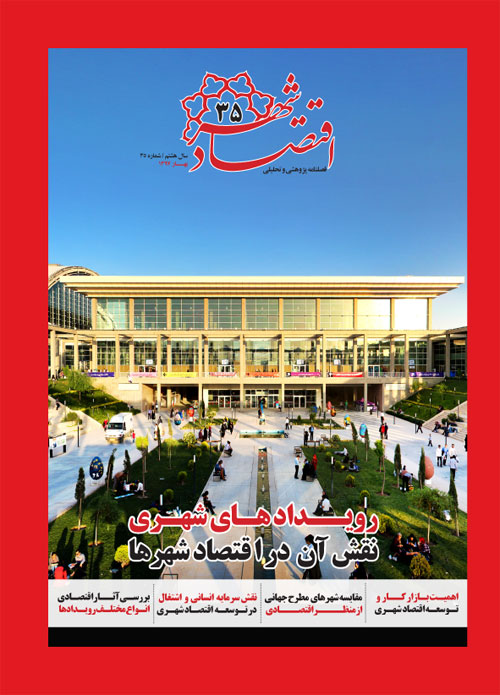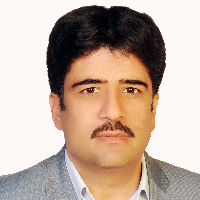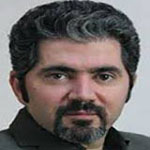Explanation of Key Drivers Effective in Establishing an IoT-based Smart City (Case Study: Mashhad Metropolis)
Introduction :
The increase in population in urban centers requires the provision of sufficient services and infrastructure to meet the needs of city residents. Furthermore, this population density in highly populated cities poses challenges in terms of governance, economic growth, environmental sustainability, quality of life, transportation, electricity, water consumption, and other issues. Smart cities are typically created with advanced infrastructure and modern information and communication technologies, and the Internet of Things (IoT) provides intelligent solutions for future cities by connecting smart devices and utilizing big data analytics. This allows city management and residents to access a wealth of real-time information about the urban environment and make decisions, take actions, and plan for the future based on that information. Given its current and future population attraction and potential, the city of Mashhad requires synchronization with modern developments to optimize the use of resources and facilities and create the necessary foundations to meet future needs. Therefore, this research aims to identify the key factors and drivers for Mashhad City to achieve a smart city model based on the Internet of Things in the future. Accordingly, the research question of this study is: What are the key drivers influencing the formation of an IoT-based smart city in the city of Mashhad in the future (by 2033)?
In the present study, the research method was a mixed approach in terms of objective and application and a combination of descriptive-analytical and future-oriented approaches in explaining the structure. Accordingly, the most influential factors in the formation of an IoT-based smart city in Mashhad were examined. Data collection was carried out through documentary methods (library sources and scientific journals) and field methods (using a questionnaire tool). In this research, the statistical population consisted of 25 experts, professionals, and urban stakeholders available, including city managers (mayors of districts, deputies, heads of organizations, and managers of urban areas, especially the Municipality of Mashhad), members of the Islamic City Council (especially the Research Center of the Islamic City Council of Mashhad), urban experts in the Mashhad County Governorate and the Office of Urban Affairs and Provincial Councils of Khorasan Razavi, the General Directorate of Roads and Urban Development of Khorasan Razavi, professors at the Ferdowsi University of Mashhad, Islamic Azad University (Mashhad Branch), Payame Noor University, and non-profit higher education institutions located in Mashhad, as well as specialists in the urban field. In this study, structured interviews were conducted with several stakeholders in urban planning and information technology using the Delphi method to identify key factors. Then, by synthesizing the factors obtained from the interviews and studying the documents in the research background, the validity and reliability of the variables were confirmed by experts. Ultimately, the factors were evaluated in the form of a future-oriented questionnaire.
Using field studies and library research, the most influential factors in the formation of an IoT-based smart city in Mashhad were identified. Then, using the quantitative method of future-oriented analysis and the Micmac software, the level of influence or susceptibility of the identified factors was determined. Therefore, the research findings indicate that among the 26 key factors influencing the formation of an IoT-based smart city, after examining the indicators and extracting the influential key factors (direct and indirect), 7 key drivers have had the greatest impact on the formation of an IoT-based smart city in Mashhad. These drivers include government policies in the field of information technology, improving the level of information literacy and scientific capabilities of citizens, investing in the development of communication and information technology infrastructure, creating a platform for citizen participation in urban development, raising awareness of the benefits and advantages of smart facilities through collective knowledge and culture-building, establishing and strengthening advanced infrastructure based on a smart city, and extensive use of information and communication technology (ICT).
In a summary of the research results, it can be mentioned that government policies in the field of information technology can have significant effects on the deployment of IoT-based smart cities in the short-term ten-year planning horizon. Furthermore, improving the level of information literacy and scientific capabilities of citizens can provide a suitable platform for this in Mashhad, as harnessing relevant knowledge and information is essential for the application of science and new trends in society. Additionally, investment in the development of communication and information technology infrastructure holds special importance. By allocating more capital to this area, the foundation for the formation of a more advanced and better smart city, considering IoT technology, will be established. It should be noted that the use of a new phenomenon requires awareness. Therefore, raising awareness among citizens and officials about the benefits and advantages of replacing conventional facilities with the utilization of collective knowledge and culture-building is crucial. Moreover, by creating and strengthening advanced infrastructure based on a smart city, progress can be made towards achieving the ultimate goals, ultimately leading to the realization of those goals through extensive use of information and communication technology.
- حق عضویت دریافتی صرف حمایت از نشریات عضو و نگهداری، تکمیل و توسعه مگیران میشود.
- پرداخت حق اشتراک و دانلود مقالات اجازه بازنشر آن در سایر رسانههای چاپی و دیجیتال را به کاربر نمیدهد.




